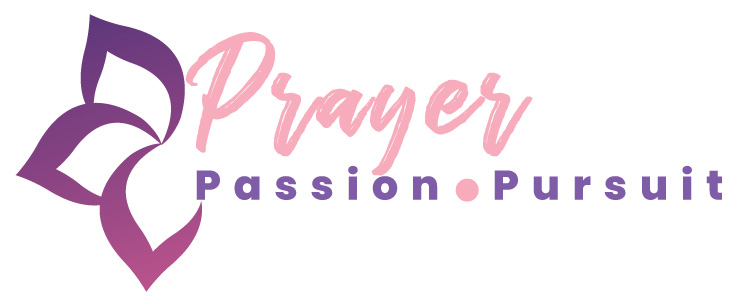Have you ever been hurt by someone, so much so that the thought of forgiveness seemed unfathomable? Many of us find it difficult to respond to the injustice and trauma of offences committed against us with forgiveness. Simply put, forgiveness can be hard; some hurts just cut too deep.
Does God Require us to Forgive?
Are we required to forgive when the hurt, the betrayal seems so earth-shattering?
In Matthew 18, Jesus teaches one of the most profound lessons on forgiveness. In verse 15 he taught the disciples that if anyone suffered an offence at the hands of their brother then they should go and try to work it out with that person. Peter, probably still pondering this, asks Jesus in verse 21: “Lord, how many times shall I forgive my brother or sister who sins against me? Up to seven times?” Jewish customs taught that a man was to forgive another no more than 3 times (Collins, 2002). In doubling this figure Peter perhaps thought that this would be a reasonable amount of times to forgive someone, after all, forgiving someone seven times might seem like a lot. If you agree with this, then Jesus’ reply might be shocking to you because he tells Peter in verse 22, “I tell you, not seven times, but seventy-seven times.”
Jesus uses a large number to communicate how much we should forgive i.e., a lot! He then follows this up with the parable of the unmerciful servant which solidifies the importance of forgiveness in the lives of believers.
The Parable of the Unmerciful Servant
In the parable of the unmerciful servant (Matthew 18:23-35), Jesus likens the kingdom of heaven to a king wishing to settle his accounts with his servants. One of the king’s servants owed a large amount that he could never repay. The servant pled with the king for mercy and the king responded with compassion and cancelled the debt.
The servant whose debt the king had cancelled had a fellow servant who owed him a much smaller amount. He confronted his fellow servant, assaulted him and demanded that he pay him back. The fellow servant begged for mercy but he refused and had the indebted servant thrown into prison until he could repay. Ironically, the first servant put the second servant in a situation where he would never be able to repay his debt (since he could not work and earn to pay off the debt while in prison).
Having heard of the servant’s refusal to forgive another, the king became angry and ordered the first servant to be tortured until he could pay his debt. The ungrateful servant is hereby placed into the same situation in which he placed his fellow servant, a situation where he cannot work towards paying off his debt (since he can’t work while being tortured). The assumption here then, is that he will be tortured forever. Jesus ends by saying in verse 35, “This is how my heavenly Father will treat each of you unless you forgive your brother or sister from your heart.”
The Lesson
So are we required to forgive? As believers, the answer is an unequivocal YES!
The principle illustrated in the parable is simple; because we have been forgiven, we ought to forgive others. Just like the first servant in the parable, we owed a massive debt; a sin debt that we could not repay. Just like the first servant’s debt was forgiven, Jesus paid our debt in full, which is the basis of our forgiveness. In other words, as the old hymn says,
“He paid a debt he did not owe, I owed a debt I could not pay.”
Paul tells us in Romans 5:8 that “while we were yet sinners Christ died for us.” Therefore just as God has shown us grace, we are required to extend the same to others out of gratitude and appreciation for our own forgiveness. Jesus also taught this same principle in Matthew 6, when he taught his disciples how to pray, “And forgive us our debts, as we also have forgiven our debtors. For if you forgive other people when they sin against you, your heavenly Father will also forgive you.” Matthew 6:12,14.
How many times have you recited and glossed over this line from the Lord’s prayer? Better yet, how many times have you prayed the Lord’s prayer while harbouring unforgiveness in your heart? ?? I have, which is to say that I have prayed this prayer disingenuously before. Yes, I have held on to grudges instead of extending the same grace that I have been shown by God. I’ve had to reconcile this as I deepened my walk with God because I realized that not only is unforgiveness a terrible burden to carry, it also puts distance between you and God.
Scripture commands us over and over again to forgive (Colossians 3:13; Luke 6:37; Ephesians 4:32; Matthew 6:14-15; Mark 11:25; Luke 17:3-4; Mathew 18:21-22). Therefore, for the believer, unforgiveness goes against the very word of God. Unforgiveness in the life of a believer may also indicate ungratefulness. Just like the first servant in the parable, if we are unwilling to forgive others, are we truly appreciative of God’s forgiveness, have we truly accepted said forgiveness?
Forgiveness and Fairness
One of the things I once struggled with where forgiveness is concerned is the idea that the offender is somehow “let off the hook,” and this seemed unfair. However, forgiveness is not about fairness nor is it about whether or not the offender is deserving. Even Jesus when he was on the cross, asked forgiveness from the father for the very people who mocked and crucified him (Luke 23:34). This was not out of fairness, this was mercy. In like manner, forgiveness for us is not about fairness, but about mercy, obedience to the word of God and freedom.
“To forgive is to set a prisoner free and discover that the prisoner was you.”
Lewis Smedes.
Seventy Times Seven?
Jesus’s command of “seventy times seven” was not meant to be literal but rather that forgiveness should be unlimited since God’s mercy toward our sin is unlimited. Forgiveness is not about keeping score. It’s not about keeping a running tally of offences against you. To forgive is to make a conscious decision not to hold an offence over someone but to release them and if we truly release them that means that we aren’t keeping score.
“Forgiveness is not an occasional act, it is a constant attitude.”
Martin Luther King Jr.
A Holy Doormat?
As one preacher puts it, unlimited forgiveness does not mean that you become a doormat for the glory of God. It does not mean that you remain in an abusive situation or allow people to walk all over you in the name of forgiveness. Forgiveness does not necessarily mean reconciliation either. It doesn’t mean that the relationship will automatically be mended nor does it need to. You can still forgive someone and set healthy boundaries because let’s face it, some people are abusive and untrustworthy; therefore maintaining a relationship with them is unhealthy for you. I would like to pause here to say that if you are in an abusive relationship, please seek help.
Forgiveness only requires one person, you; reconciliation requires at least two. Obviously, in certain situations reconciliation is great. However, reconciliation is not always possible especially if the offender is unrepentant (see Matthew 18:15-17).
“It is more rewarding to resolve a conflict than dissolve a relationship.”
Dr. Allan Zimmerman
Forgive and Forget
I’m sure you’ve heard the term ‘forgive and forget,’ but forgiveness does not mean that the offence will be automatically scrubbed from your memory. It happened, it was real and you were hurt. Forgiveness does not minimize the severity of the offence. Furthermore, the process of forgiveness can take time; not every offence is easily or instantly forgivable. None of us is perfect, only God is. Therefore, if you are struggling with unforgiveness, surrender it to God. Pray and tell him about your struggles and ask for grace so that you can show mercy to those who have hurt you.
Benefits of Forgiveness
Aside from the spiritual benefits, research has shown that forgiveness can contribute positively to your physical health. According to Johns Hopkin Medical, it can lower the risk of heart attack; improve cholesterol levels and sleep quality; and reduce pain, blood pressure, and levels of anxiety, depression and stress.
“There is an enormous physical burden to being hurt and disappointed.”
Karen Swartz, M.D.
Chronic anger causes you to be in a constant state of fight-or-flight, the result of which is numerous changes in heart rate, blood pressure and immune response. These changes, then, increase the risk of depression, heart disease and diabetes, among other conditions. On one hand, forgiveness can calm stress levels, leading to overall improved health. On the other hand, research shows that holding grudges can lead to severe depression and post traumatic stress disorder.
Finally, the key to forgiveness is recognizing how much God has forgiven us. In other words, forgiving others is a part of our own forgiveness as illustrated in the parable of the unmerciful servant. I’m not at all suggesting that forgiveness is an easy process, like I said before, some hurts ‘cut to the white meat.’ However, the child of God who by faith through Christ has had all sins forgiven, must be willing to forgive others out of gratitude for the grace that was shown to us.
Ref.
Collins, M. G. (2002, December). Parable of the Unforgiving Servant. Bible Tools. Retrieved September 18, 2021, from https://www.bibletools.org/index.cfm/fuseaction/Library.sr/CT/BS/k/770/parable-of-unforgiving-servant.htm.
Forgiveness: Your health depends on it. Johns Hopkins Medicine. (n.d.). Retrieved September 19, 2021, from https://www.hopkinsmedicine.org/health/wellness-and-prevention/forgiveness-your-health-depends-on-it.




